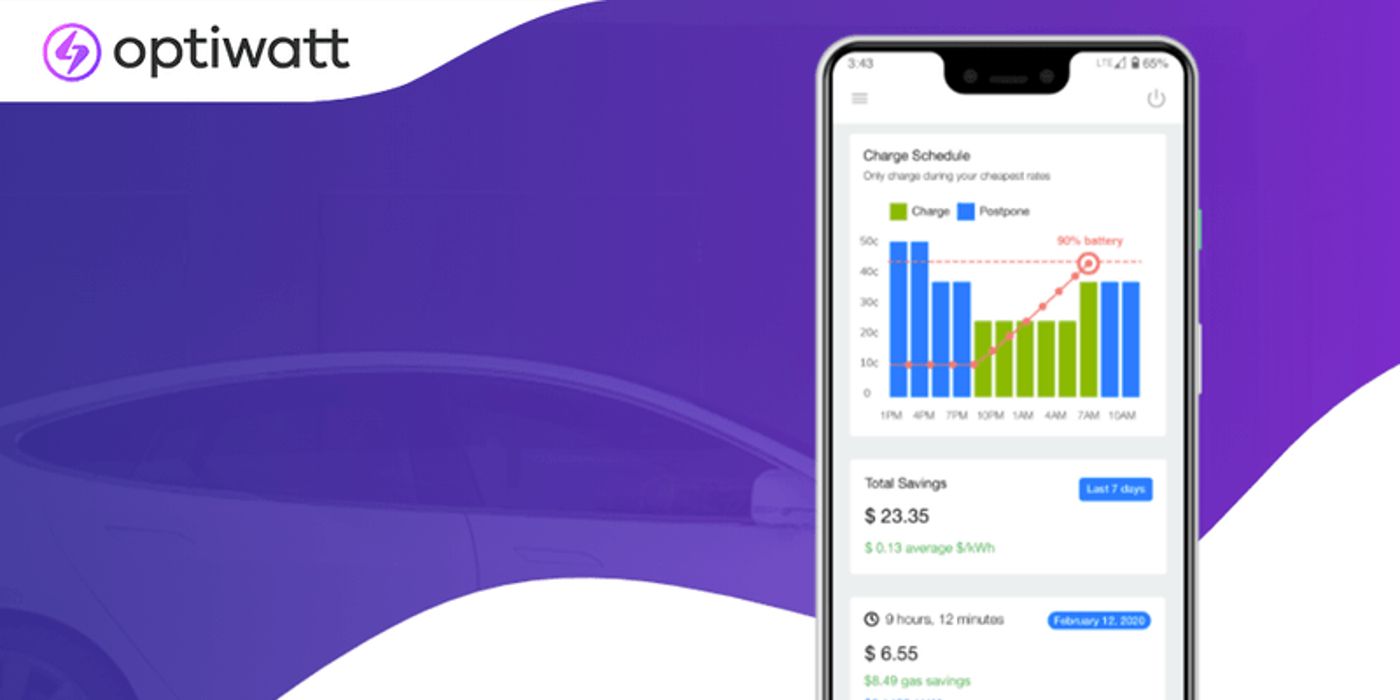Optiwatt, an electric vehicle charging management platform, is partnering with energy utility cooperatives to help drivers save money while home charging. With EV adoption experiencing increased growth, there are concerns about the grid’s ability to handle large-scale charging. Fortunately, industry players have begun exploring ways to sustain home EV charging without hurting the grid. For example, Tesla Powerwall users in Texas can now sell extra electricity to the grid.
In a conversation with Screen Rant, Optiwatt founder Casey Donahue explained that one of the program’s goals is to “incentivize drivers to charge their EVs at certain times of the day.” It's often advised to charge during off-peak hours because energy demand is typically low during these periods. Optiwatt builds on that premise by scheduling charging sessions when the energy rates are low. To enroll, owners of telematics-enabled EVs will need to download the app, which is free to use. Optiwatt currently has two live managed charging projects in Alberta (Fortis Alberta) and South Carolina (CEPCI), with more areas expecting coverage soon.
How Optiwatt Will Benefit EV Ownership
The Optiwatt app targets convenience of use. Before starting a session, users can set their desired battery level and departure time. Apart from controlling their EV's charge levels, drivers will also save money on EV charging, as the app will only commence a session when rates are low. It’s designed to predict the most inexpensive periods to charge through the homeowner’s utility plans and current energy costs.
The app also gives drivers insights into details like charge costs, gas savings, and charge efficiency for any period. Optiwatt claims customer data is secure and while users need to use their login credentials to register an electric model, the platform doesn't store vehicle identifying information. However, it does retain an encrypted version of the authentication token used to communicate with the electric model. According to Donahue, the app has limited access to vehicles’ endpoints and can only start/stop charging and view the EV’s driving distance, which he says keeps the risk of cyberattacks low.
Optiwatt currently supports several EVs, including all four Tesla models, the Chevrolet Bolt EV, Ford Mustang Mach-E, Hyundai Kona Electric, Nissan Leaf, Jaguar I-Pace, Volkswagen ID.4, and Audi e-tron. It also works with plug-in hybrid vehicles (PHEVs) like the Ford Escape, BMW i3, and Volvo S90. The company's website has a list of compatible models. Signing up for the Optiwatt program should enable drivers to save plenty of money on charging and also offer long-term benefits for both the grid and the environment.
Source: Optiwatt


